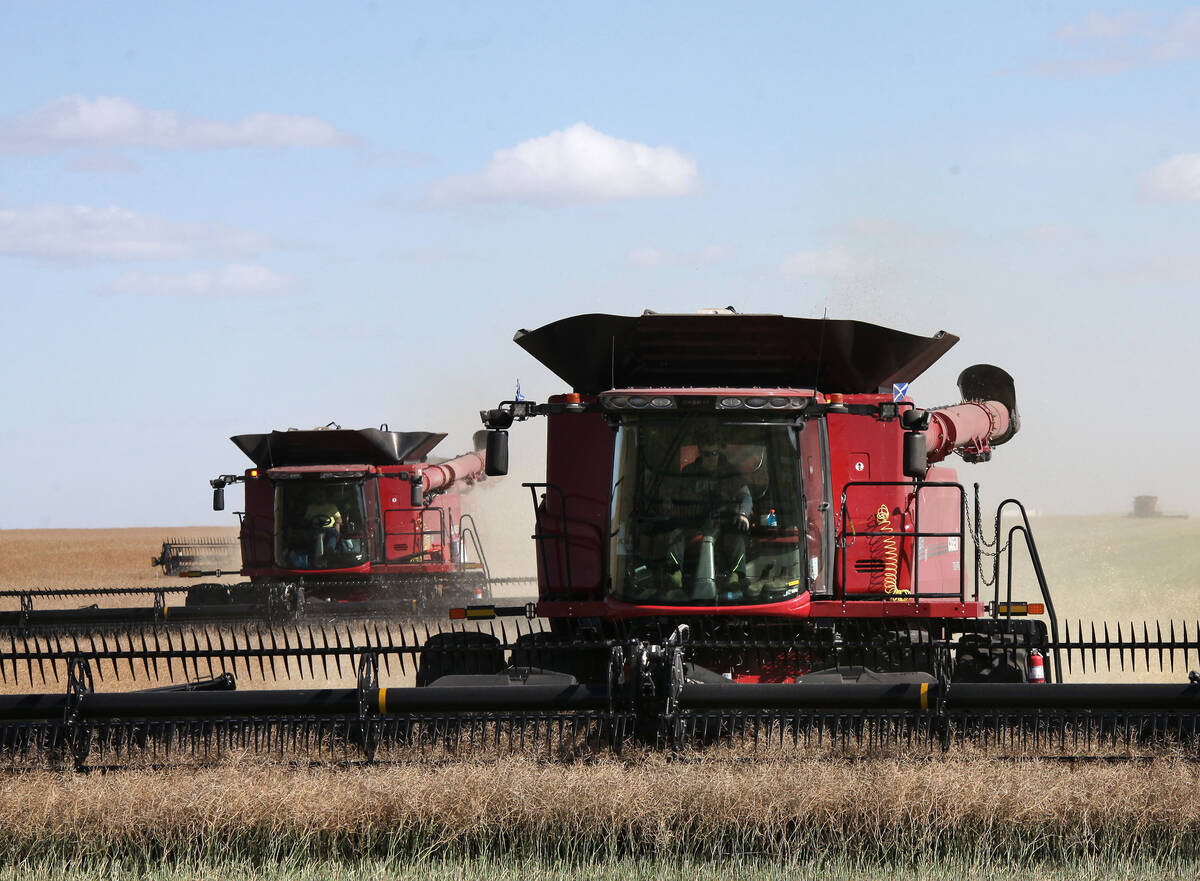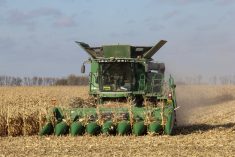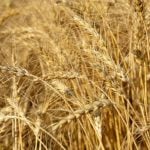CNS Canada — As the winter wheat harvest finishes up in Manitoba, initial reports are that yields are lower than in years past.
“It was a disadvantage with the winter and with the weather conditions this summer it’s been pretty dry… so between the two, it’s kind of reduced yields,” said Doug Martin, chairman of Winter Cereals Manitoba.
Martin has heard reports of yields varying between 40 and 70 bushels per acre, depending on the area. Manitoba Agriculture’s weekly crop report, released Monday, said winter wheat yields were at 30 to 80 bushels per acre, though in the southwest corner of the province yields were reported as average.
Read Also

Notable changes in exports to China, India
China and India figured prominently in the September export data issued by the Canadian Grain Commission on Nov. 7. For the most part, the CGC’s numbers highlighted issues with grain, oilseed and pulse exports from licensed facilities to those countries.
The year wasn’t the best for winter wheat. Last fall, dry conditions led to fewer acres being sown. According to Statistics Canada, 1.396 million acres of winter wheat were seeded. The subsequent winter saw little snow, with no coverage for fields in some parts of the province. Spring saw a lot of freezing and then thawing temperatures which weren’t good for winter wheat development.
“It was patchy… most of Manitoba, eastern Manitoba, has been pretty dry. So there wasn’t a lot of moisture to (help the crop),” Martin said.
While yields might not be the best, the market should be good for selling the winter wheat crop, as wheat prices have been on the rise lately. Drought conditions in Europe and Australia are leading to production concerns globally.
Most winter wheat usually ends up on the feed market, according to Martin. With dry conditions, feed grain prices are also on the rise.
According to a feed grain buyer in Alberta, there will be feed barley shortages this year, meaning feedlots will need alternatives for livestock feed.
“I’m assuming that the feed market will be fairly robust this year with the heat and dry conditions… they will be reduced yields, especially barley will be greatly affected by that,” Martin said.
Martin is optimistic that there will be more acres of winter wheat sown this fall — but only if conditions are right.
“Hopefully crops come off early and farmers will think about seeding some winter wheat this year. I think they will be lots of time before the deadlines to seed winter wheat this year. And hopefully some rain comes.”
— Ashley Robinson writes for Commodity News Service Canada, a Glacier FarmMedia company specializing in grain and commodity market reporting.

















